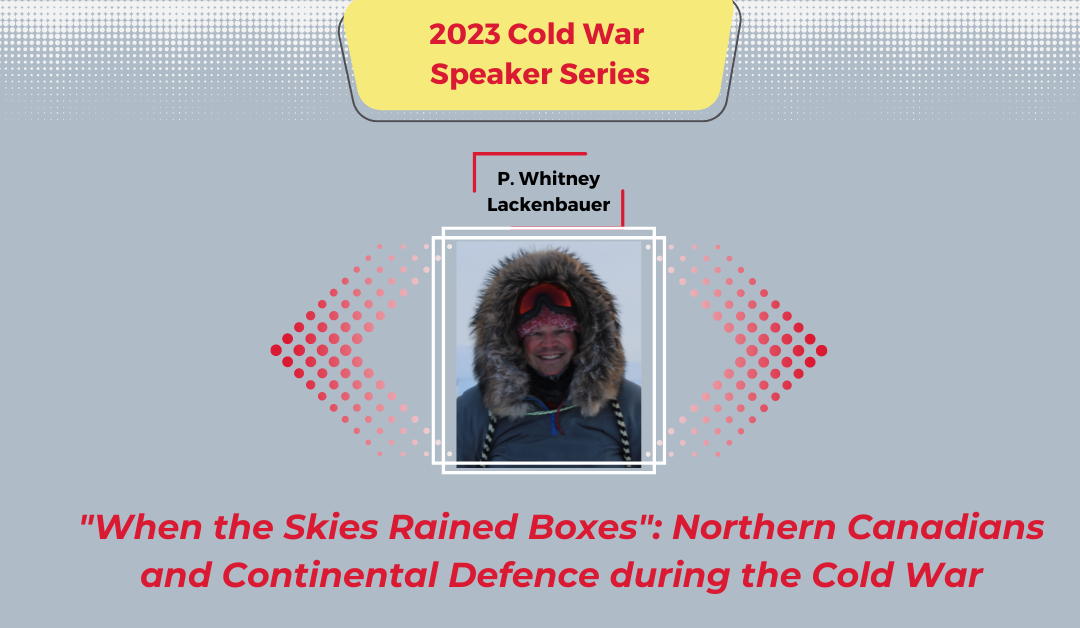Yesterday, September 28, 2023, we held the first session in this year’s Cold War Speaker Series, where we were pleased to welcome P. Whitney Lackenbauer, Ph.D., Canada Research Chair (Tier 1) in the Study of the Canadian North and Professor in the School for the Study of Canada at Trent University. Dr. Lackenbauer presented his topic, “When the Skies Rained Boxes”: Northern Canadians and Continental Defence during the Cold War. In this presentation, he discussed aspects of how “military modernization” affected Northern Canadians, and particularly Indigenous peoples, during the Cold War.
Did the North affect the military or did the military affect the North? This question was front of mind during the evening’s presentation that delved into the coldest part of the Cold War. Dr. Lackenbauer began his discussion by highlighting his work and involvement with the Canadian Rangers, a uniquely Canadian form of military service in remote northern regions who fulfill an array of obligations including conducting and providing support to sovereignty operations. As the political narrative during the Cold War conveyed unprecedented challenges, the North became seen as a link between Canada and the United States for its exposed front and plausible entryway to North America for enemy forces. This was a reason for the unannounced arrival of the Canadian military in the North on their “caterpillar tractors.” Their arrival greatly altered the preexisting lifestyles of the Inuit community in the North, ultimately catapulting them onto the political agenda.
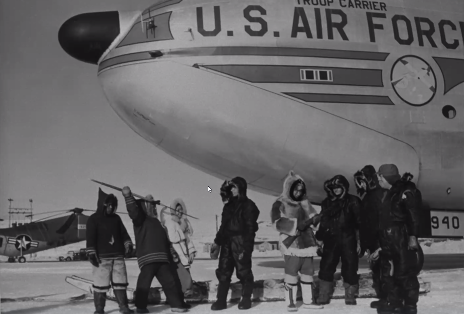
Image borrowed from P. Whitney Lackenbauer’s presentation on September 28, 2023.
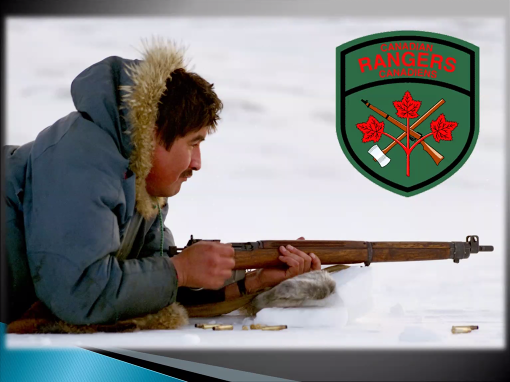
Image borrowed from P. Whitney Lackenbauer’s presentation on September 28, 2023.
Dr. Lackenbauer explained how the only previous exposure Inuit communities in the North had to political tactics was through the Hudson Bay Company. With a rapid introduction to the Cold War, communities were propelled into the Atomic Age seemingly overnight. “Military modernization” commenced through the construction of weather stations in the eastern Arctic in 1947 and continued through to construction of the Distant Early Warning (DEW) Line, a chain of Arctic radar stations to detect enemy bombers, between 1955 and 1957. Indigenous peoples were being introduced to these large–scale political projects, and many described it as “no longer having control over their own lives.”
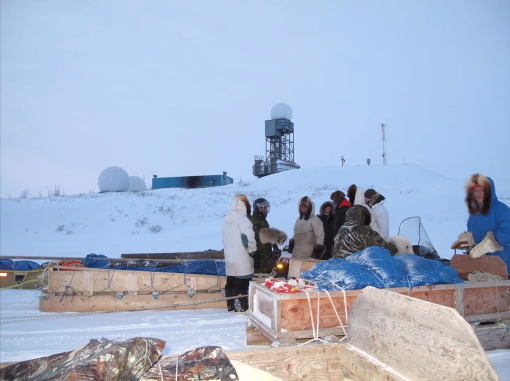
Image borrowed from P. Whitney Lackenbauer’s presentation on September 28, 2023.
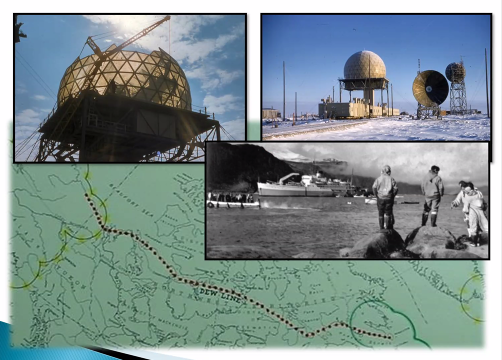
Image borrowed from P. Whitney Lackenbauer’s presentation on September 28, 2023.
Learn more about the history of Canadian sovereignty and governance in the North by watching the recording of Dr. Lackenbauer’s presentation here:
Thank you Dr. Lackenbauer for your intriguing discussion on “When the Skies Rained Boxes”: Northern Canadians and Continental Defence during the Cold War. If you would like to learn more about Dr. Lackenbauer’s extensive work, you can access his research, publications, and teachings on his website.
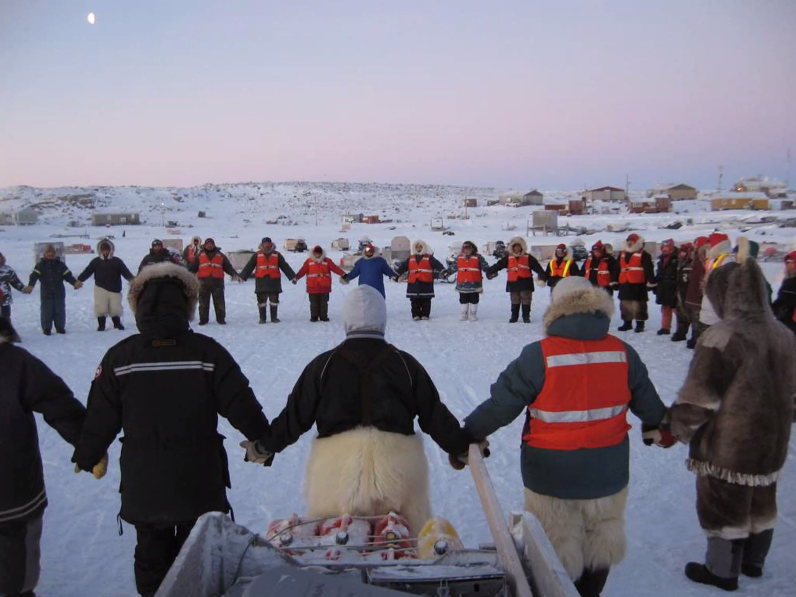
Image borrowed from P. Whitney Lackenbauer’s presentation on September 28, 2023.
We invite you to explore the Diefenbunker’s new permanent exhibition An Inuit Story: The DEW Line that exposes the long-lasting negative effects — from forced relocations to toxic waste — that the DEW Line has had on Inuit communities in the Arctic. Featuring oral histories and written testimonials from members of the Inuit community, this exhibition explores the continued impact of the construction, operation, and subsequent abandonment of the DEW Line sites and highlights how Inuit have increasingly taken charge of their own future.
Tune in for our next Cold War Speaker Series session on Thursday, October 12, 2023 at 7:00 p.m., where Joanna Smolko and Tim Smolko will be discussing How Popular Musicians Addressed the Cold War in the US and Canada.
Our final session will take place on Thursday, November 16, 2023 at 12:00 p.m., where Dr. Christabelle Sethna and Steve Hewitt will be discussing Spies, Lies, and Macho Guys: Documenting RCMP Surveillance against the Women’s Liberation Movement in Canada.
